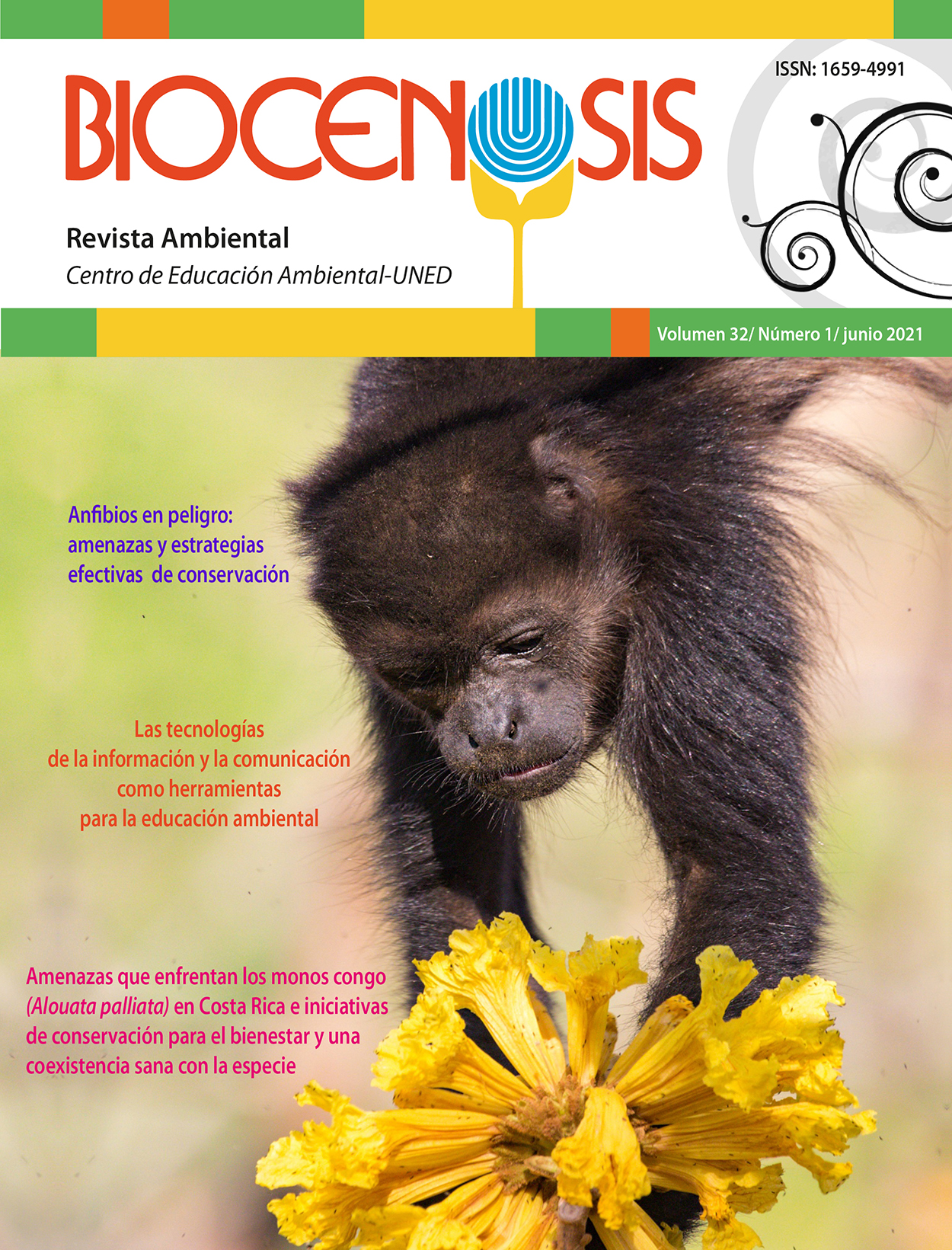Fungi as key elements in soil productivity, agriculture, and social wellness
DOI:
https://doi.org/10.22458/rb.v32i1.3548Abstract
Abstract: The lack of knowledge and the incorrect land management in certain agricultural practices represent a problem for organisms that contribute to soil health, such as fungi. The objective of this research is to demonstrate the importance of the use of fungi as key elements in soil productivity, agriculture, and social wellness to encourage their use, conservation, and protection. The study was carried out in a 1,5km transect at Finca Boquete-Sibü, Pérez Zeledón, a Low Montane Rain Forest, where different species of fruiting bodies were observed for nine months during the dry and rainy season. During this period, information such as names, substratum, and altitude was recorded, and, through a review of literature, their functions for agriculture, soil and social wellness were examined. We observed 25 individuals of 17 species of mushrooms, which are the main decomposers of organic matter and recyclers of nutrients. They create mycorrhizae, are nitrogen fixers and pest controllers, and are also used for bioremediation and as indicators of soil quality. Moreover, they can be used as food, medicine, art, or tourism. The responsible use of natural resources such as fungi will allow the conservation of the soil and the ecosystem in general, in addition to increasing food security and social wellness.
Published
How to Cite
Issue
Section
License
Copyright (c) 2021 Biocenosis

This work is licensed under a Creative Commons Attribution-NonCommercial 4.0 International License.
